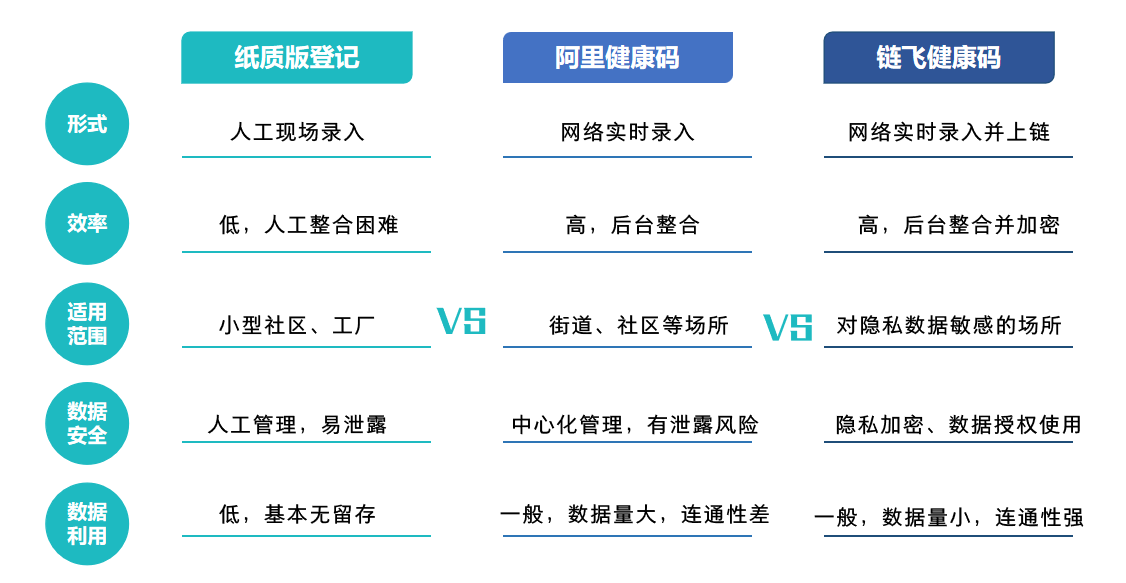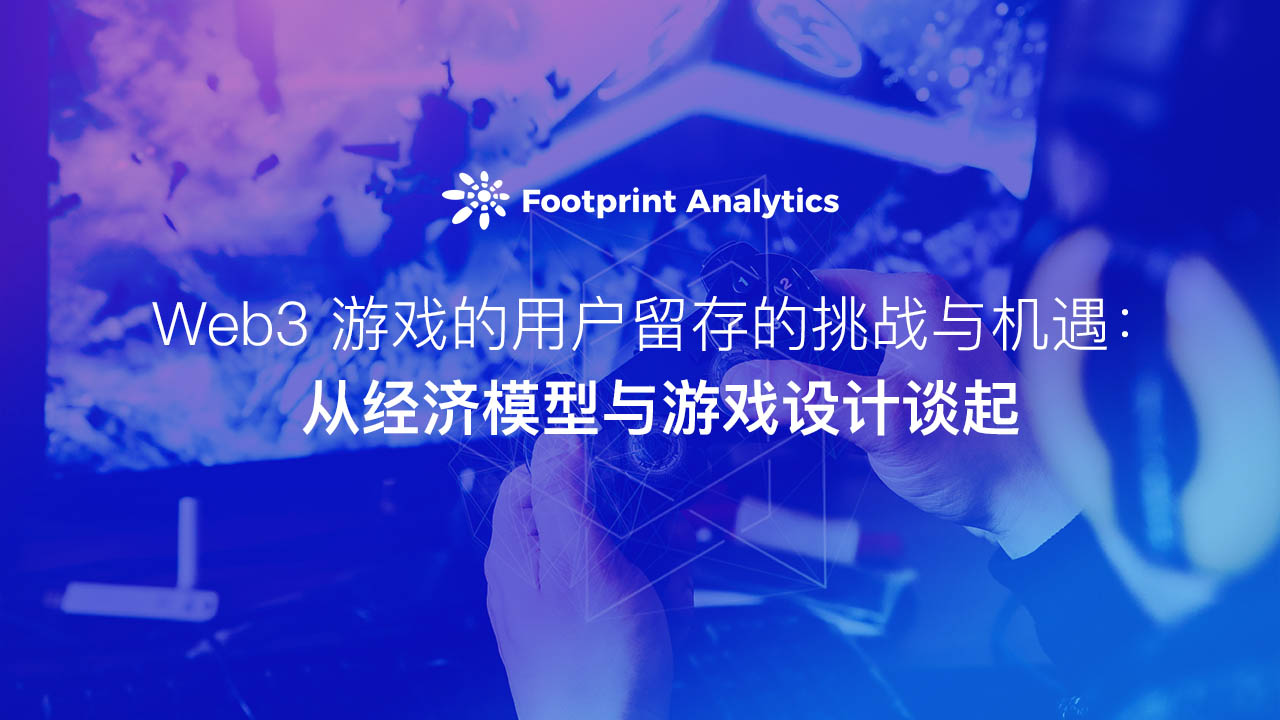Data privacy black hole under the new crown epidemic: industrial crux needs to be solved by blockchain

Presumably, everyone has also experienced the situation of filling in various registration information during the epidemic prevention period. Stations, communities, companies, and even shopping malls and supermarkets will collect user names, ID numbers, mobile phone numbers, and residential addresses in the form of paper / e-forms involving privacy. data.
From the author's point of view, there are many problems with this method of information collection: First, the authenticity of the data, how to ensure that the information filled in by users is accurate? The second is the collection efficiency problem. Users repeatedly fill in the form and register repeatedly. The third is the data privacy security issue. Who protects the privacy security? How to blame after the leak? Many questions remain unanswered.
Of course, I am not denying the correctness of registering information in a special period, but I think that this outdated information collection method should also be upgraded.
- Listed Company Topics | The Way of Huobi Holding
- I could have: The role of the blockchain in the epidemic is called "regret"
- Depth | Application Guide for Blockchain Wars
Rethinking the Big Data Industry from Information Registration in the Internet Age
Let's first look at several common information collection modes in this new crown epidemic.
Paper-based registration is commonly found in community streets, factory parks, shopping malls, supermarkets, and other places. Manual registration is required to complete subsequent entries. This registration method is arguably the most common but also the least effective. First, the data demander cannot verify the authenticity of the data, especially in the case of private information, and does not rule out that some people "speculatively" fill in false information; second, the information utilization rate is low, even when the data is completely Under the premise of reality, there is no communication between various demand parties, and the data often ends in the registration process, and eventually becomes a "model project".
Electronic form registration, which is common in office buildings and some communities, relies on platforms such as WeChat Mini Programs and Apps, and can provide information registration, information entry and export functions, such as the "health code" products launched by Tencent and Ali. These products have greatly improved the problem of information distortion and data utilization; but they have not solved the problem of data privacy well. The data filled in by users has been aggregated into the databases of major manufacturers, and ownership has changed. There is also a risk of data misuse.
The blockchain electronic form registration is similar in function to the Internet spreadsheet, but in combination with blockchain technology, a "data on-chain" function has been added. Each piece of data will generate an exclusive transaction hash. Tracing back guarantees the integrity of data information and avoids the risk of information leakage to a certain extent. However, due to factors such as traffic, entrance, and corporate qualifications, such products launched in the blockchain industry are difficult to promote on a large scale, and a single enterprise application cannot exert the distributed value of the blockchain.

Performance comparison of several products
There is no doubt that paper registration is still the most widely used method in this outbreak. Internet giants have launched health code products, such as Tencent and Ali's health codes, which are more commonly used in cities with more developed networks; while in the blockchain field, similar products launched by Linkfei Technology, Zhigui Technology, etc. are mostly Taking privacy protection as the starting point, it is more suitable for small-scale adoption.
In fact, the problems of information authenticity, information security, and privacy leaks exposed during the epidemic prevention work are not accidental. Behind them are the problems left and exposed by the development of the big data industry to date, and the crux of hindering the evolution of big data. It is very interesting that these problems will find solutions in the blockchain industry.
Big data industry crux, needs blockchain to solve
The development of the big data industry has long foresight. Since 2014, a number of data trading platforms have appeared in China, and local governments have also set up data trading institutions, including the Guiyang Big Data Exchange and the Yangtze River Big Data Trading Center. The Fourth Plenary Session of the 19th CPC Central Committee even put forward that data and capital, land, knowledge, technology, and management should be juxtaposed as production factors that can participate in the distribution. The big data industry really ushered in the golden period of development. With such a strong policy, the original hidden problems directly appeared, and tried to find a way to crack.
Problem 1: The ownership of data is in doubt, the value is difficult to determine, and the data transaction lacks a basis. Take epidemic data collection as an example. Who exactly belongs to the data filled by users? In principle, these data should belong to the users themselves, but in the current environment, the "ownership" name is dead, and users can neither manage their own data nor make money from it. In addition, the value of data depends to a large extent on the scenario in which the data is applied. At present, there are often cases of data abuse. Obtaining data for reason A, but using data with method B, the value of data is difficult to measure, and naturally it is impossible to talk about Form a good data trading ecology.
Blockchain can just solve the above problem. The standardized and standardized data on-chain operation solves the problem of data standardization and right confirmation, and objectively evaluates the value based on the actual content of the data; at the same time, the smart contract technology is used to complete transactions between the data supply and demand parties, minimizing the possibility of human intervention and optimizing the data. transaction. Imagine that the most common scenarios of finance + blockchain, traceability + blockchain, etc. all make use of the above means.
Problem two: users passively contribute data. You may feel that in the current Internet environment, data islands have emerged, and a large amount of user data is held by a few giant companies. There is a lack of transparency in user data use and circulation, and data resources are abused and privacy violations are common. At the same time, these data islands have passed The business logic of data transactions is profitable, but the data owner, that is, the individual, is not gaining revenue. This business logic is obviously not smooth.
Blockchain technology can turn data into the only tradable value asset through trusted time stamps and identity stamps to achieve data confirmation. Users will fully have the independent decision-making right to use their own data, allowing individuals to guarantee On the basis of fairness and full transparency, conducting data transactions with trusted enterprises can not only meet the needs of users to enjoy big data services, but also earn benefits from data use.
Question 3: Data privacy cannot be guaranteed. Data privacy breaches are an indisputable fact. Whether it's frequent harassment calls we receive or frequent big data killings, privacy breaches have become a matter of course. However, to a large extent, this is also the inevitable development of the big data industry. The emergence of data oligarchs will inevitably lead to data abuse, and privacy leakage is naturally unavoidable.
There is no need to talk about the relationship between blockchain and privacy. The blockchain has been labeled with privacy protection since its birth. However, it should be noted that data encryption will inevitably lead to a decline in computing performance. Differentiate and take different measures according to the data form to achieve maximum efficiency.
Since the advent of "health code" products, the benefits of the big data industry have come one after another. In this epidemic, big data technology has indeed played a vital role, showing the important value of data assets; and more importantly The point is that with the development and upgrading of the big data industry, the role of blockchain will also be better played, and eventually promote the industrial upgrade.
We will continue to update Blocking; if you have any questions or suggestions, please contact us!
Was this article helpful?
93 out of 132 found this helpful
Related articles
- Community, DAO, DeFi, this conference changed my view of the crypto world
- Perspectives | Issues exposed by the epidemic will become new business opportunities
- France and Austria jointly develop new blockchain forensics tools to help users conduct due diligence
- Video: Insight into the major changes in financial infrastructure in the next 10 years (Part 2)
- As the epidemic is drawing to a close, we have a reflection on the digital system
- Why is the central bank's blockchain patent ranked first in the world's central bank?
- Blockchain Industry Weekly Report | Central Bank Officially Releases "Technical Specifications for Financial Distributed Ledger Security"





